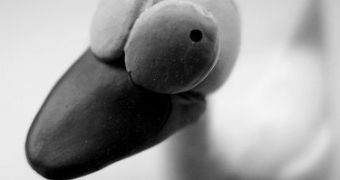Researchers found that less attractive female house sparrows have a tendency to lower their standards when choosing a mate.
As there are basically no studies on condition-dependency of female mate choice, scientists from the Konrad Lorenz Institute for Ethology in Vienna carried out a research on sexual selection preferences in the common house sparrow.
The laws of nature say that females will always choose the best-looking males as their mate, or at least that was the case until now.
Matteo Griggio and Herbert Hoi have found that, actually, less attractive females will not even attempt to mate with males that are above average.
In the case of sparrows, the most genetically fit and “handsome men” are males with a large patch of dark-colored feathers on their chest, known as the “badge” or the “bib”.
Males with big badges usually have the favors of many females and manage to have more offspring than the others, so it appears that in this case, size does matter.
For the study, the team randomly divided 96 male house sparrows in two groups, one with an average patch and the other with artificially enlarged throat patch.
After observing the behavior of 85 females, they concluded that it is possible to define which males the females preferred, according to the time they spent with each one.
Griggio explains that “actually, overall female sparrows don't have a preference for badge size in males, but less attractive females – those with a low weight and poor condition – have a clear preference for less attractive males with smaller or average-sized badges”.
The idea seems to be that rather than not having a mate, unattractive home sparrows females chose more unattractive males, relates e! Science News.
“There is some good news for the plainer females though - while they may be forced to settle for less dominant males with small chest badges, these males have been shown to invest more time in parental care than their good-looking counterparts,” adds Griggio.
The study appears in the open access journal BMC Evolutionary Biology.

 14 DAY TRIAL //
14 DAY TRIAL //